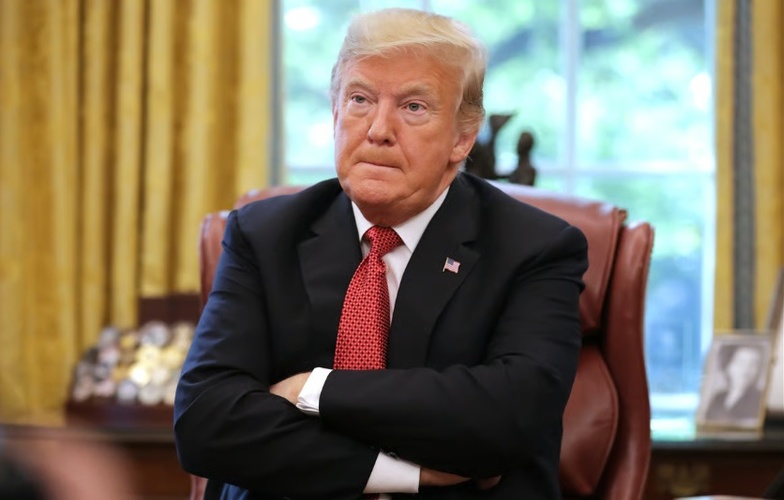SAEDNEWS: The New York Times reported that Volodymyr Zelensky’s hardline stance on the Ukraine war and his refusal to concede any territorial claims to Russia may provoke dissatisfaction from Donald Trump—a development that could impact the atmosphere of a potential Trump-Putin meeting.

According to Saed News, citing The New York Times, amid rapidly evolving and sensitive developments surrounding the Ukraine war on the international political stage, The New York Times warned in a report that current positions held by Volodymyr Zelensky, Ukraine’s president, could lead to tensions in his relationship with Donald Trump. The newspaper, citing informed sources and expert analysis, wrote that Trump—who is likely to play a prominent role again in U.S. diplomacy—may adopt a different approach from the current Washington administration toward ending the war, an approach incompatible with Zelensky’s red lines.

In recent weeks, Zelensky has repeatedly emphasized that Ukraine is not willing to cede even an inch of its territory to Russia. This stance, which has become especially pronounced ahead of the possible Trump-Putin meeting, sends a clear message against any quick compromise efforts. The New York Times recalls that Trump, in past statements, stressed the need for a “quick end” to the war and spoke of the possibility of direct negotiations with Putin to reach an agreement—one that many analysts believe might require some territorial concessions from Kyiv.
This potential clash of approaches could not only lead to personal disputes between Trump and Zelensky but also affect the level of U.S. support for Ukraine. Experts say that if Trump returns to power or gains greater influence over U.S. foreign policy, pressure on Kyiv to accept a faster deal could increase—especially if Washington aims to shift resources and focus to other global challenges, such as competition with China.
The New York Times writes that in diplomatic circles, Zelensky is worried about the possibility of such a policy shift and is trying to strengthen relations with Europe and rally Western public support to prevent any weakening of Ukraine’s position. However, informed sources told the newspaper that some of Zelensky’s advisors fear that his strong insistence on non-negotiable positions might reduce diplomatic flexibility in future talks.
During his presidency, Trump had a controversial relationship with Zelensky—one marked by the “Ukraine phone call” scandal and his first impeachment. Now, the possible return of this dynamic to the forefront of U.S. foreign policy could once again heighten the sensitivity and complexity of their relationship.
From a U.S. domestic political perspective, any open confrontation between Trump and Zelensky could deepen divisions among Republicans and Democrats over support for Ukraine. While many traditional Republicans continue to back military and financial aid to Kyiv, a faction led by Trump allies believes the war should end swiftly and at a lower cost to the U.S.—even if that means making concessions to Russia.
In Kyiv, these speculations are being closely monitored. Ukrainian officials understand well that even a shift in Washington’s tone and approach could have a significant impact on the battlefield balance and the course of potential negotiations. Therefore, analysts say Zelensky must strike a delicate balance between maintaining his principled stance and avoiding unnecessary provocation of key foreign actors.
Ultimately, as The New York Times concludes, the future of the Trump-Zelensky relationship will largely depend on U.S. domestic political outcomes, the trajectory of the war in the coming months, and the ability of both sides to manage disagreements and find common ground. Otherwise, this potential rift could affect not only Washington-Kyiv relations but also the overall course of the Ukraine war.

